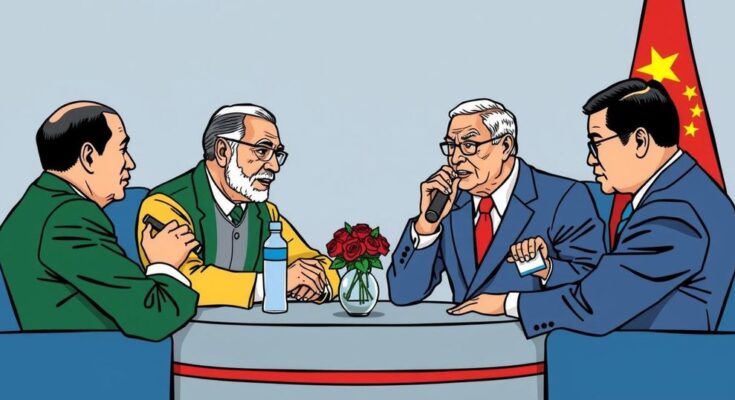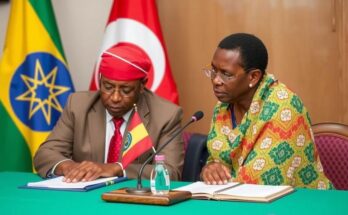The former Goldman Sachs economist, Jim O’Neill, critiques the BRICS grouping’s capacity to compete with the US dollar, attributing its limitations to the lack of cooperation between China and India. He describes BRICS as largely symbolic, emphasizing the need for substantial engagement to address global issues and suggesting that true collaboration is essential to elevate the group’s legitimacy on the global stage.
The prospects for the BRICS grouping to effectively challenge the dominance of the US dollar remain overly ambitious, particularly as long as its two principal members, China and India, continue to exhibit significant divisions and lack comprehensive cooperation in trade. This perspective was shared by Jim O’Neill, the former chief economist at Goldman Sachs and the originator of the BRIC acronym, during a recent discussion with Reuters. As the BRICS leaders gathered for their summit, Russian President Vladimir Putin aimed to illustrate the failure of Western nations to isolate Russia amidst the ongoing conflict in Ukraine, signaling Russia’s intent to foster alliances with the increasingly influential nations of Asia. O’Neill, who coined the term BRIC in 2001 to highlight the expansive growth potential of Brazil, Russia, India, and China, expressed skepticism regarding the group’s future. He asserted, “The idea that the BRICS can be some genuine global economic club, it’s obviously a bit out there with the fairies in the same way that the G7 can be…” He described the gatherings of BRICS as largely symbolic and devoid of substantial achievements over the past 15 years. Despite its significant representation, accounting for approximately 45 percent of the global population and 35 percent of the economy based on purchasing power parity, the group is heavily influenced by China, which contributes more than half of its economic strength. O’Neill pointed out that Russia’s efforts to establish an alternate international payment system under BRICS face the significant hurdle of lacking collective resolve among member nations to engage in tariff-reducing trade agreements. He remarked, “If they wanted to be really serious about economic matters, why don’t they genuinely pursue less tariff based trade between each other?” Although Putin indicated interest from over 30 countries to join BRICS, O’Neill cautioned that expanding the group might complicate its ability to achieve effective collaboration. He emphasized the necessity for BRICS to address serious global issues, such as climate change and health crises, rather than merely serving as a platform for dissatisfaction with Western governance. The dynamics between China and India, particularly following tensions that surfaced after a border clash in 2020, underline the challenges that the BRICS grouping faces in attempting to forge a unified economic stance. Recent discussions between the two nations have indicated a willingness to enhance cooperation, yet O’Neill maintains that true collaboration is absent until both powers work towards common goals as opposed to confrontations.
The BRICS consortium, comprising Brazil, Russia, India, China, and South Africa, emerged through informal meetings intended to foster collaboration among these rapidly growing economies. Its primary objective has been to challenge existing global economic frameworks and to enhance the representation of emerging markets in international governance. The potential for BRICS to rival the current influence of the United States and Western-based financial systems has been central to its discourse. However, historical and ongoing geopolitical tensions, especially between China and India, pose substantial hurdles to its ambitions for coherence and influence.
In summary, Jim O’Neill’s analysis underscores a critical view of the BRICS group’s potential to serve as a viable challenger to the US dollar, emphasizing the need for greater unity between its leading members, China and India. His observations reflect broader sentiments regarding the necessity for BRICS to develop clear objectives and to engage more seriously with vital global challenges. The contrasting interests among its members, particularly in light of ongoing geopolitical frictions, will likely continue to hinder the group’s aspirations for meaningful economic collaboration.
Original Source: www.ndtv.com




